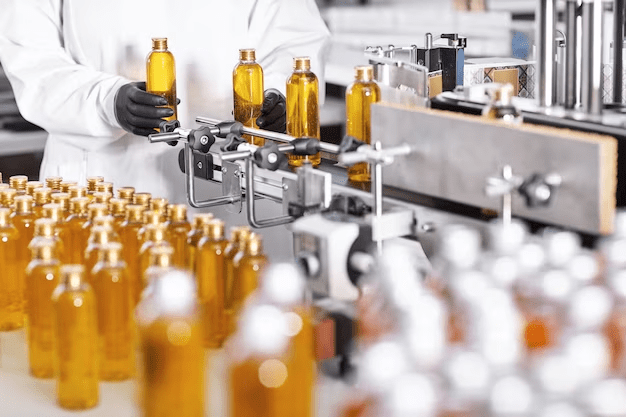What Determines Supplement Manufacturer Integrity?
Product integrity in supplement manufacturing refers to the maintenance of high-quality standards throughout the production process, from sourcing raw materials to packaging the final product. It includes factors such as ingredient purity, potency, and consistency, as well as adherence to regulatory standards and transparency in labelling. Supplement manufacturers must ensure that their products are safe, effective, and accurately labelled to maintain product integrity and consumer trust.
How Supplement Manufacturers Ensure Product Integrity?
Supplement manufacturers ensure product integrity through a combination of quality control measures, including rigorous testing of raw materials, in-process checks during manufacturing, and final product testing. They also implement Good Manufacturing Practices (GMP) to ensure that their facilities and processes meet regulatory standards. Additionally, supplement manufacturers may conduct audits and inspections to verify that their suppliers and manufacturing partners adhere to the same high standards.
Why Supplement Manufacturer’s Integrity is Crucial?
Product integrity is critical in the supplement industry to ensure that consumers receive safe, effective, and accurately labelled products. Without product integrity, there is a risk of contamination, mislabeling, or adulteration, which can harm consumers and damage the reputation of the manufacturer. Maintaining product integrity is also essential for regulatory compliance, as supplement manufacturers are required to meet strict standards set by regulatory agencies such as the FDA. By prioritising product integrity, supplement manufacturers can build trust with consumers and regulatory agencies, leading to long-term success in the industry.
Tips to Guarantee Supplement Integrity in Manufacturing
To ensure product integrity in supplement manufacturing, manufacturers should implement a comprehensive quality control program that includes testing of raw materials, in-process checks, and final product testing. They should also conduct regular audits and inspections of their facilities and suppliers to verify compliance with regulatory standards. Additionally, manufacturers should prioritise transparency in their sourcing and manufacturing practices, providing consumers with detailed information about the ingredients used and the production process. By following these tips, supplement manufacturers can ensure that their products are safe, effective, and of the highest quality, maintaining product integrity and consumer trust.
Types of Quality Control Measures for Product Integrity
To guarantee the integrity of their products, supplement makers employ a range of quality control procedures, such as evaluating raw materials for impurities, potency, and purity. Throughout the production process, they also carry out in-process inspections to keep an eye on the product’s quality and make sure it complies with requirements. Supplement producers also conduct final product testing to confirm that the product satisfies all legal standards and is safe for ingestion. These quality control procedures support producers in upholding the integrity of their products and guaranteeing that customers receive goods that are both safe and efficient.
Exploring Regulatory Standards for Product Integrity
Agencies like the FDA create regulatory criteria for product integrity in the supplement sector, which include specifications for ingredient potency, purity, and label correctness. In order to guarantee the safety, efficacy, and accuracy of their products, supplement makers are required to comply with these requirements. Moreover, production procedures, facility inspections, and recordkeeping are all covered by regulatory standards, which guarantee that goods are produced in accordance with relevant laws. Supplement producers can preserve product integrity and guarantee that their goods fulfil the highest requirements for quality and safety by adhering to regulatory guidelines.
The Role of Transparency in Maintaining Product Integrity
Transparency is crucial in the dietary supplement industry to maintain the quality of the product. Gaining the trust of regulatory bodies and customers requires supplement makers to be transparent about their sourcing practices, production processes, and quality control systems. This means providing thorough information about the parts that make up their products, the facilities that produce them, and the quality control procedures that ensure the end product. Supplement producers can boost consumer trust in their products by being transparent about their commitment to product integrity and consumer safety.
Future Trends for Supplement Manufacturer Product Integrity
Future developments in supplement manufacturing product integrity assurance are probably going to centre on more sophisticated testing techniques, enhanced transparency, and the application of technology to track and trace goods all the way through the supply chain. Mass spectrometry and DNA barcoding are two examples of advanced testing techniques that can yield more trustworthy and precise results, guaranteeing that goods fulfil quality requirements. Enhanced openness in sourcing and production procedures can foster confidence among customers and authorities. Technology can also be used to track and trace products from raw ingredients to completed goods, guaranteeing product integrity and safety. Examples of this technology include blockchain and RFID tagging.
Conclusion
Supplement manufacturers must prioritise product integrity to maintain consumer trust and regulatory compliance. By implementing best practices such as rigorous quality control, transparency in sourcing and manufacturing, and adherence to regulatory standards, manufacturers can ensure that their products are safe, effective, and accurately labelled. Product integrity is not only essential for consumer safety but also for the long-term success and reputation of supplement manufacturers. As the supplement industry continues to evolve, maintaining product integrity will remain a critical focus to meet the demands of consumers and regulatory agencies alike.

